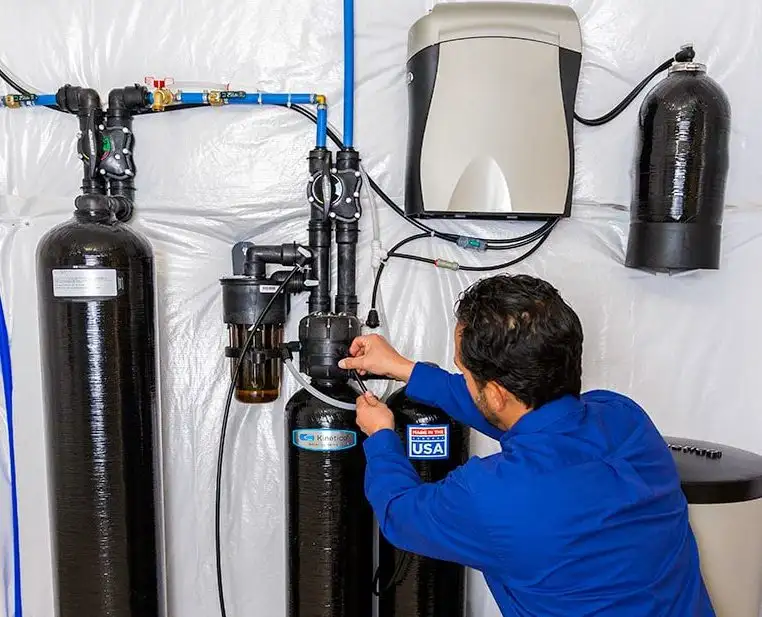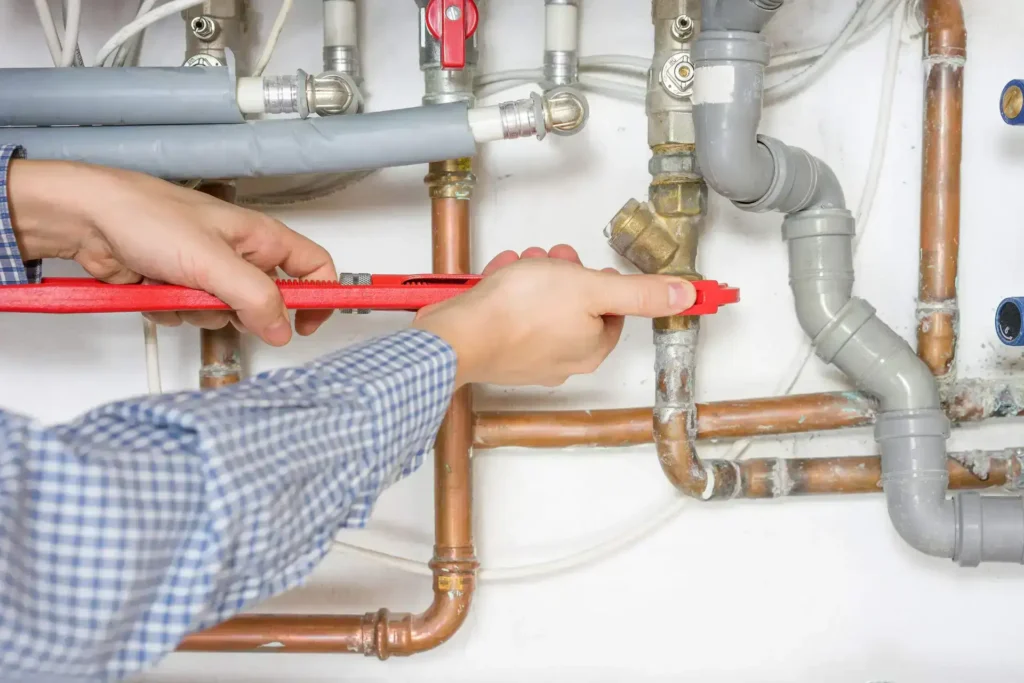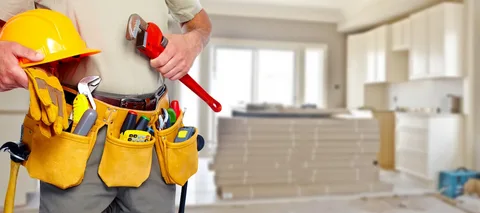A water softener system price is a tag that you attach to removing hard minerals, such as calcium and magnesium, from your water. These systems protect your pipes and appliances and also your skin from damage brought about by the hard water effects. Prices may vary from one system type to another and one size to another.
Are you the type who grumbles at hard water stains on your dishes? A water softener could solve this problem. Reading about the element of cost may help you to make a good selection for house issues.
Water softener system costs depend on the operation of the system and the different installation requirements. Basic models are more affordable as compared to advanced systems. Additionally, maintenance costs should be factored in.
| Low | Average | High |
| $200 | $1,500 | $11,000 |
How Does Water Softener System Cost Differ By Type?

The cost of a water softener system depends on the type of system – salt or salt-free, single or dual-tank, magnetic. Salt softeners alone have a very wide price range and so on. So let us now briefly see how they differ in terms of pricing:
| Water Softener System Type | Average Cost |
| Point-of-use reverse osmosis | $100 – $500 |
| Magnetic | $200 – $600 |
| Single tank ion exchange | $400 – $1,700 |
| Salt-free conditioner | $500 – $3,000 |
| Double tank ion exchange | $1,000 – $2,500 |
| Water distiller | $1,200 – $4,000 |
| Whole-house reverse osmosis | $4,000 – $11,000 |
How Does Capacity Affect Water Softener System Prices?
The grain capacity of a water softener determines its price. Grain capacity refers to the amount of grains of hardness that the system can remove before regeneration. Systems with high grain capacities are better suited for homes with very hard water or high water usage but are also more expensive than smaller systems.
Larger systems accommodate higher volumes of water, thus making them more appropriate for big households. Capacity is determined by the number of residents, the hardness of the water, and overall usage. Most start at 24,000 grains, but some smaller models will provide similar pricing and performance.
A price chart based on grain capacity will give you a clearer idea of which system suits your needs and budget the best.
| Capacity | Average Cost |
| 24,000 grains or less | $300 to $600 |
| 32,000 grains | $400 to $1,000 |
| 48,000 grains | $500 to $1,200 |
| 64,000 grains | $1,000 to $1,500 |
| 80,000 grains | $1,200 to $1,800 |
| 96,000 grains or more | $1,500 to $2,50 |
Which Factors Impact Water Softener System Cost Estimates?
This content provides a detailed overview of the various factors influencing the cost of installing a water softener system. Here’s a concise breakdown:
Labor
Labour is a significant expense in installing a water softener system. A plumber will cost between $50 and $200 an hour. It all depends on how hard it is to install the system. The more difficult it is, the longer it takes.
The cost of labor can add up quickly. It’s also important to consider how long the work will take. Getting an estimate from the plumber helps plan your budget. You can also compare rates from different plumbers to find the best deal.
Water Testing
Knowing how hard your water is is important and can be detected by water testing. And you can get a simple DIY test kit for less than $50. This will give you a general sense of the hardness of your water.
If you have more critical concerns, take a professional test. A professional test can reach up to $500. More detailed results result from it. Especially if it is a well in your household, this information will help choose the right softener system.
Size
The number of people in the house and the hardness level of your water determine which size of the water softener will be appropriate. To calculate the usage, you multiply the number of people by 90. For instance, a five-member home uses 450 gallons per day.
Next, multiply your usage by the hardness level measured in grains per gallon. If you do not know your water hardness, use a home test or send a sample to a lab. For example, using 8 grains per gallon and 450 gallons, you need a 36,000-grain system. Your installer will be able to select the right system size for you.
Plumbing
Sometimes, plumbing adjustments are necessary when installing a water softener. Sometimes, you can connect it directly to your existing pipes, but other times, you may need to add a new plumbing loop to the water softener system.
Installation of new plumbing, such as a soft water loop, may range from $500 to $2,000. This will depend on the extent of work needed to redirect the water. Be sure to ask your installer about the plumbing requirements for your system.
Maintenance
Regular maintenance of your water softener is essential for optimum functioning. Costs of maintenance are estimated at $100 to $900 annually and vary on the type of service required and the condition of the system.
Preventive maintenance keeps the system from breaking down and gives it a longer useful life. While most of the chores, e.g., salt refill or cleaning of the filter, can be done by the house owner, some complex processes may require a professional to help you.
Installation
Generally, there is a requirement for a professional for the installation of water softeners as the whole installation cost is likely to be as low as $150 and as high as $1,000 depending on the complication or the type of system.
While every installation is different and will therefore take a few hours or significantly more time depending on the plumbing arrangement, make sure you get an estimate with the installer before any work starts. This helps you to plan the whole cost of the system.
Location and Permits
Your location can affect the cost of installing a water softener. Areas with high demand, like cities with hard water, often have higher installation costs. It’s important to consider these regional differences when budgeting.
Depending on where you live, you might also need a permit to put it in. Some states or cities require permits to install a water softener. Check with your local authorities or the installer to see if you need one.
What Are the Benefits of a Water Softener System?
A water softener system provides several benefits that improve your home’s water quality and protect appliances. Here are some key advantages:
1. Prevents Scale Build-Up
A water softener removes minerals such as calcium and magnesium, which cause scale build-up in pipes, water heaters, and appliances. This helps extend the life of your plumbing and reduces maintenance costs.
2. Improves Skin and Hair Health
Soft water is gentler on skin and hair, reducing dryness and irritation. It can leave your skin feeling smoother and your hair softer after showers or baths.
3. Enhances Cleaning Efficiency
Soft water works better with soaps and detergents so that you end up using fewer to get the same job done. It also helps prevent soap scum from sticking to tiles, glass, and laundry, thus making cleaning easier.
4. Saves Money on Energy Bills
Since it prevents scales from forming in appliances such as water heaters, soft water keeps them running much more efficiently. This may mean reduced energy usage and subsequently cut utility bills.
5. Makes Water Taste Better
Soft water tastes better as it does not contain minerals in hard water. This can enhance the overall taste of drinking water and improve the flavor of food and beverages.
Installing a water softener can make a noticeable difference in the quality of your water and overall comfort in your home.
Professional vs. DIY Water Softener Installation
Homeowners may consider whether to hire a professional to install a water softener or get a DIY unit and install it themselves. Each option has its pros and cons.
DIY Water Softener Installation
You can easily install a small water softener by yourself. Many reverse osmosis systems are easy to set up and usually include instructions on how to do it. If you have some plumbing knowledge, then you will have no problem handling it.
Professional Installation
Whole-house systems are bigger water softeners, which can be harder to install. They require more complex plumbing and, in some areas, may necessitate an expert. Some jurisdictions even have rules that state you must hire a professional for these bigger systems. In short, small water softeners can be installed by you, but larger ones are better installed by a professional to make sure everything works right.
Hiring a Professional for a Water Softener System
Hiring a professional to install or maintain a water softener system is a smart decision to ensure the job is done correctly. Here are some tips to consider when hiring a professional:
- Check Experience: This is an experienced professional who can install and service water softener systems. They should have experience with various types of water softeners and know which one to recommend for you.
- Licensing and Insurance: Make sure the professional is licensed and insured. This protects you and the technician in case of any problems during installation or maintenance.
- Check reviews: From online reviews or request references from past clients to understand how reliable and quality-conscious the company is.
- Get Multiple Quotes: It’s a good idea to get at least two or three quotes to compare pricing and services offered. This will give you a sense of the going rates in your area.
- Ask them about maintenance and warranty: Good professionals should ensure that they come back to repair or adjust some things after they have installed something.
- Consider Certification: Certification by a respected organization, such as the Water Quality Association (WQA), can help ensure the professional has met industry standards.
By following these tips, you can hire a qualified professional who will install and maintain your water softener system effectively.
So, Is a Water Softener System Worth It?
Yes, a water softener system is often worth the investment. It prevents mineral buildup in pipes and appliances, saving you money on repairs and replacements. Soft water also improves the effectiveness of soaps and detergents, reducing the amount needed for cleaning.
You will also save money on energy bills and detergents, and contribute to a lesser plumbing cost in the long run. If you happen to have a hard water problem, investing in a water softener system would be a smart long-term investment.
FAQs About Water Softener Systems
Q1. What is a water softener?
A water softener removes hard minerals like calcium and magnesium from your water. This prevents buildup in pipes and appliances.
Q2. How will I know I need a water softener?
Indications that you have hard water include soap scum, water spots on dishes, and mineral buildup on faucets. A water test will confirm your water’s hardness level.
Q3. How long do water softeners last?
A water softener lasts for 10–15 years with regular maintenance. Cleaning the system and refilling the salt extends its lifespan.
Q4. Is maintaining a water softener expensive?
The annual maintenance cost is between $100 and $900. This usually covers salt refills and occasional professional maintenance.


